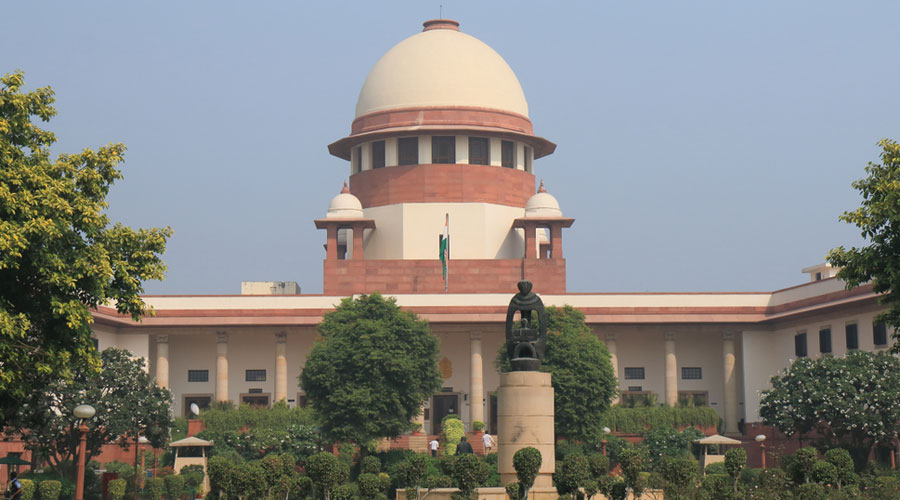A plea has been filed in the Supreme Court seeking a uniform marriageable age for men and women.
The petitioner, who has sought the transfer of all related appeals to the Supreme Court from the high courts in Delhi and Rajasthan, has argued that the current thresholds of 18 years for girls and 21 years for boys are discriminatory and panders to the “stereotype” of women being subservient to men.
Advocate Ashwini Kumar Upadhyay, the petitioner, had earlier filed a writ petition on the matter, following which the court had issued notice to the government.
A uniform marriageable age is being hotly debated on social media for the past few days.
Upadhyay said on Thursday that as different petitions were pending in various courts, they should be clubbed and transferred to the Supreme Court for an authoritative pronouncement.
“The petitioner is compelled to approach this Hon’ble Court as more PILs may be filed in other high courts seeking ‘uniform minimum age of marriage for men and women’. Therefore, in order to avoid multiplicity of litigation and conflicting views on interpretations of Articles 14 (equality), 15 (non-discrimination) and 21 (life and liberty) and judgments on gender justice and gender equality, the court may be pleased to transfer these PILs and decide them collectively,” the petition said.
The minimum age of 21 for men and 18 for women are stipulated in Section 5(iii) of the Hindu Marriage Act, 1955; Section 60(1) of the
Indian Christian Marriage Act, 1872; Section 3(1)(c) of the Parsi Marriage and Divorce Act, 1936; Section 4(c) of the Special Marriage Act, 1954; and Section 2(a) of the Prohibition of Child Marriage Act, 2006.
Assailing the different age criteria for men and women, the transfer petition said: “While men are permitted to get married at the age of 21, women are married (off) when they are just 18. The distinction is based on patriarchal stereotypes, has no scientific backing, perpetrates de jure and de facto inequality against women, and goes completely against the global trends.”
Upadhyay pointed out that the Law Commission had earlier observed that there was no scientific basis for such a distinction and that differential limits “simply contributes to the stereotype that wives must be younger than their husbands”.
The Committee on Elimination of Discrimination against Women had also noted that some countries provide for different minimum ages for marriage for men and women. As such provisions assume incorrectly that women have a different rate of intellectual development from men, or that their stage of physical and intellectual development at marriage is immaterial, these provisions should be abolished, the petitioner said.
“The differential limit causes de facto discrimination. It is a social reality that women in a married relationship are expected to perform a subordinate role vis-à-vis the husband. Hence, there exists a power imbalance between the husband and wife in most marital relationships. This power imbalance is deeply aggravated by the age differential, because age itself constitutes a hierarchy of power. A younger spouse is therefore expected to respect and be servile to her elder partner, which aggravates the pre-existing gender-based hierarchy in the marital relationship,” the petition said.
According to the petitioner, more than 125 countries have a uniform age of marriage for men and women. Noting this fact, the National Human Rights Commission, pursuant to the National Conference on Child Marriage held in New Delhi on August 29 and 30, 2018, had also recommended that India follow suit and bring uniformity in minimum age limits.










